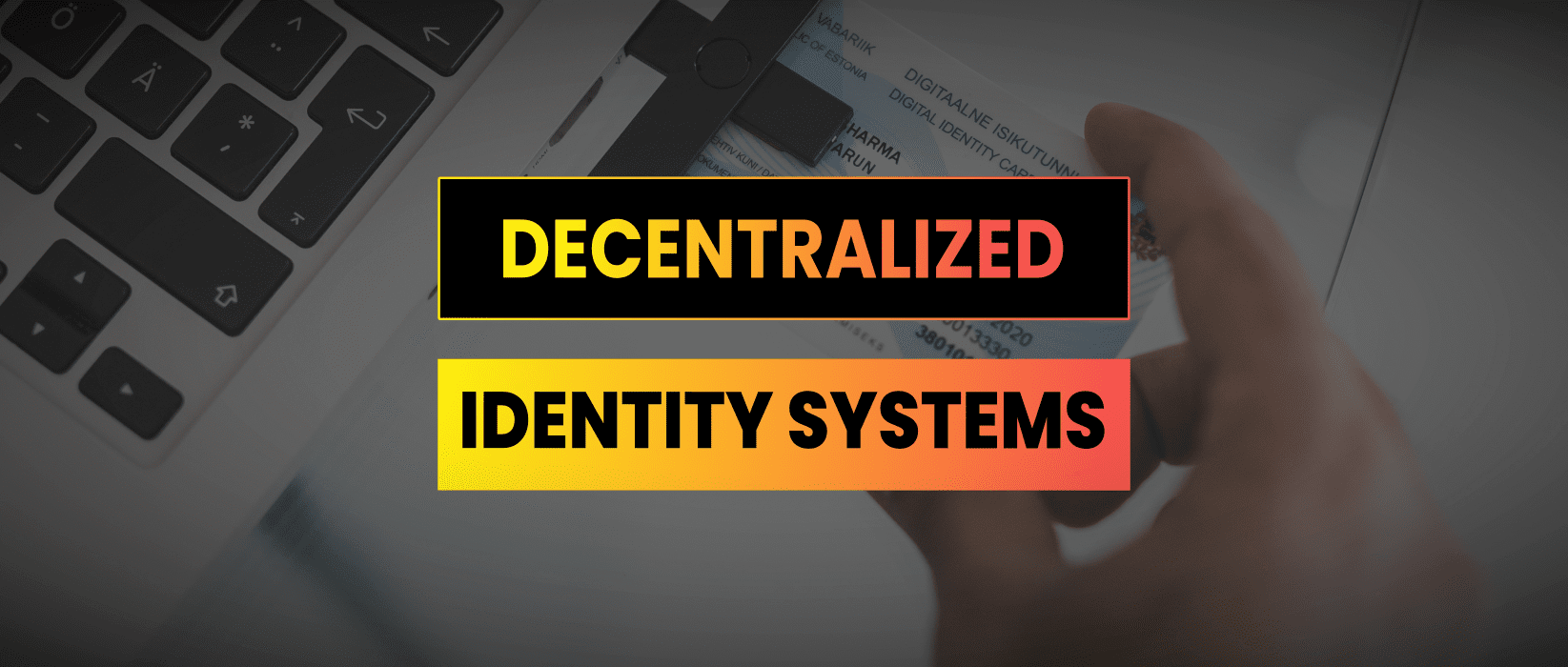Blggzz: Your Daily Dose of Insight
Stay updated with the latest news and informative articles.
Betting on Trust: How Decentralized Identity is Reshaping the Wagering Landscape
Discover how decentralized identity is transforming the betting world and building trust like never before. Join the revolution now!
Understanding Decentralized Identity: The Key to Trust in Online Betting
Understanding Decentralized Identity is crucial for establishing trust in the online betting space. As the digital landscape evolves, users are increasingly concerned about privacy, security, and the misuse of their personal data. Traditional identity verification methods expose bettors to risks like identity theft and fraud. However, by leveraging decentralized identity solutions, users can control their own data through blockchain technology, ensuring that their information is secure and only shared with trusted platforms. This shift empowers bettors and builds confidence in online betting environments, paving the way for a more transparent and fair betting experience.
Furthermore, decentralized identity facilitates trust among participants in the online betting ecosystem. Instead of relying on centralized databases that are vulnerable to breaches, decentralized systems allow for encrypted, verified identities that are immutable and easily auditable. This means that players can engage with various betting operators without repeatedly submitting sensitive information. Additionally, decentralized identity can enhance the integrity of online betting platforms by reducing instances of fraud and enabling better compliance with regulatory requirements. Ultimately, understanding and adopting decentralized identity is a game-changer for both bettors and operators, creating a safer, more trustworthy environment.

Counter-Strike is a popular first-person shooter game that pits teams of terrorists against counter-terrorists in diverse mission scenarios. Players can choose different weapons and use strategies to outmaneuver their opponents. For those looking to enhance their gaming experience, using a bc.game promo code can provide various benefits and bonuses.
How Blockchain Technology is Revolutionizing Wagering Security
Blockchain technology is at the forefront of a seismic shift in the wagering industry, providing unprecedented levels of security and transparency. Traditionally, online betting platforms have faced challenges related to fraud, data breaches, and lack of trust. However, by employing blockchain's decentralized ledger system, transactions become immutable and publicly verifiable. This means that every bet placed is securely recorded, making it nearly impossible for malicious actors to alter the transaction or manipulate outcomes. As a result, players can enjoy peace of mind knowing that their funds and personal information are safeguarded by robust encryption and a transparent system.
Furthermore, the inherent features of blockchain technology facilitate faster payouts and reduced fees. With traditional banking systems often embroiled in lengthy processing times and high transaction costs, blockchain offers an innovative solution. Smart contracts, which are self-executing contracts with the terms directly written into code, enable automatic and instantaneous payouts once conditions are met. This not only enhances the user experience but also diminishes the risk of disputes, fostering greater trust between operators and bettors. As the adoption of blockchain continues to grow, we can expect a dramatic transformation in how wagering is conducted, ensuring a more secure and efficient betting environment.
What Does a Decentralized Identity Mean for Gamblers: Benefits and Challenges?
Decentralized identity represents a transformative shift in how individuals manage their personal information online, and for gamblers, this innovation brings both significant benefits and unique challenges. In a decentralized ecosystem, players no longer rely on centralized authorities to verify their identity, allowing them greater control over their personal data. This increased autonomy can lead to enhanced privacy, as gamblers can engage with platforms without the fear of their sensitive information being misused or sold. Moreover, decentralized identities can streamline the onboarding process across gaming sites, making it easier for users to switch platforms without the cumbersome need to re-verify their identities, thus fostering a more fluid gambling experience.
However, the rise of decentralized identities also presents certain challenges for gamblers. Firstly, the technology is still in its infancy, which may lead to interoperability issues between different platforms. If a gambler's decentralized identity is not recognized by a specific casino or gaming site, they may face limitations that can hinder their ability to play. Additionally, the responsibility of safeguarding their identity rests solely on the users, which requires a certain level of technical know-how that not all gamblers possess. Finally, regulatory concerns remain, as jurisdictions might struggle to adapt existing gambling laws to accommodate this new identity structure, potentially exposing users to legal uncertainties.